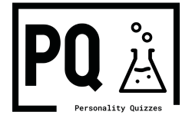Enneagram Personality Test Backed by Science
Take this free test and join the 4M+ users who discovered which of the 9 Enneagram types best fits their personality.
As seen in








The Enneagram's emphasis on growth and development sets it apart from other tests.
The Enneagram Test stands out as a premier personality test option amidst a sea of assessments like the 16 Personalities and Myers-Briggs Type Indicator (MBTI). Unlike these alternatives, the Enneagram delves deep into the core motivations, fears, and desires that shape individuals' behavior and worldview. While the 16 Personalities and MBTI focus on categorizing personality types based on traits and preferences, the Enneagram uncovers the underlying drivers behind these manifestations, offering a more profound understanding of oneself and others.
One of the key advantages of the Enneagram Test lies in its versatility. Rather than boxing individuals into a limited number of predefined categories, it recognizes the intricate interplay of nine distinct personality types, each with its own unique strengths, weaknesses, and growth paths. This nuanced approach allows for a more nuanced and personalized exploration of personality dynamics, fostering deeper self-awareness and empathy.
Moreover, the Enneagram's emphasis on growth and development sets it apart from other tests. By highlighting not only our dominant personality type but also the interconnectedness of all nine types within us, it offers a roadmap for personal growth and transformation. Through understanding our core fears and motivations, we can cultivate greater self-compassion, break free from limiting patterns, and unlock our full potential.
Trusted by 4M+ Users








